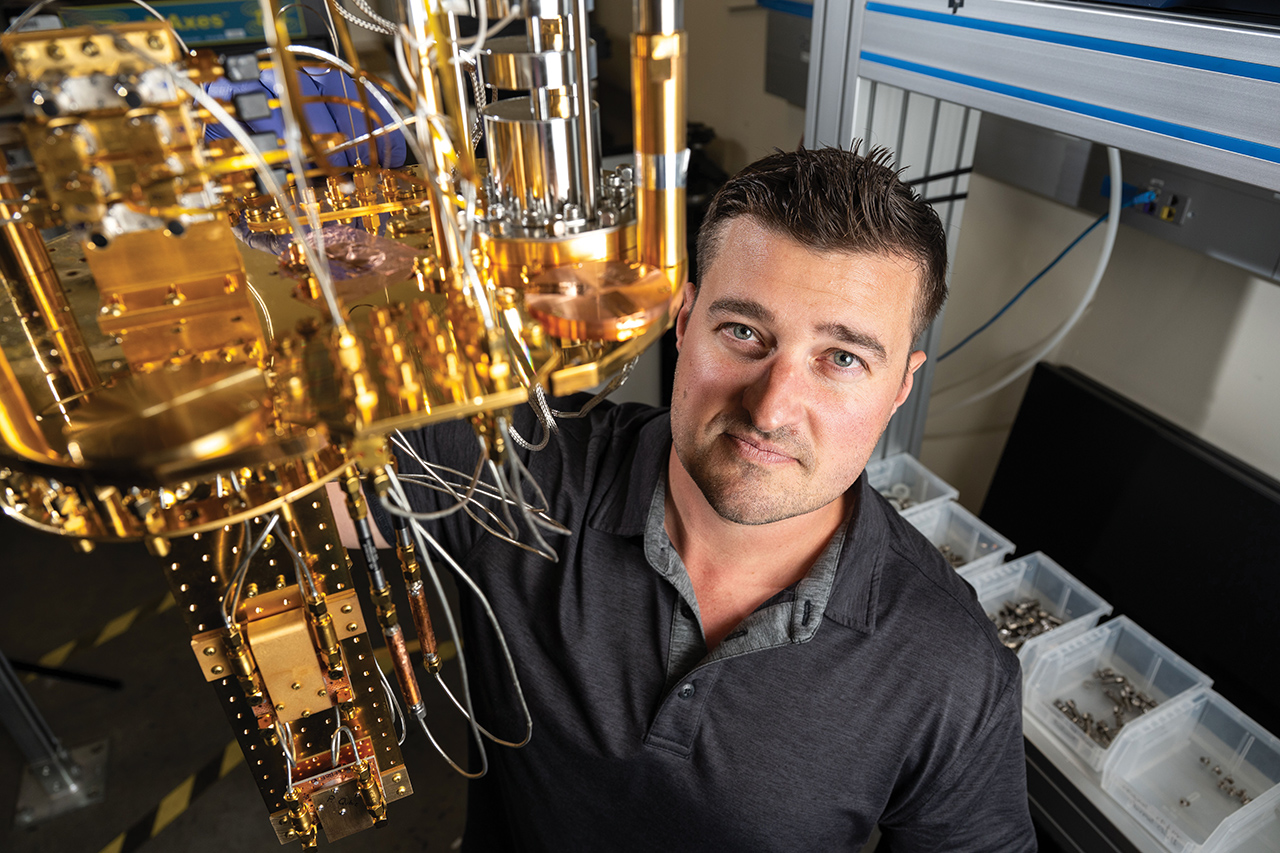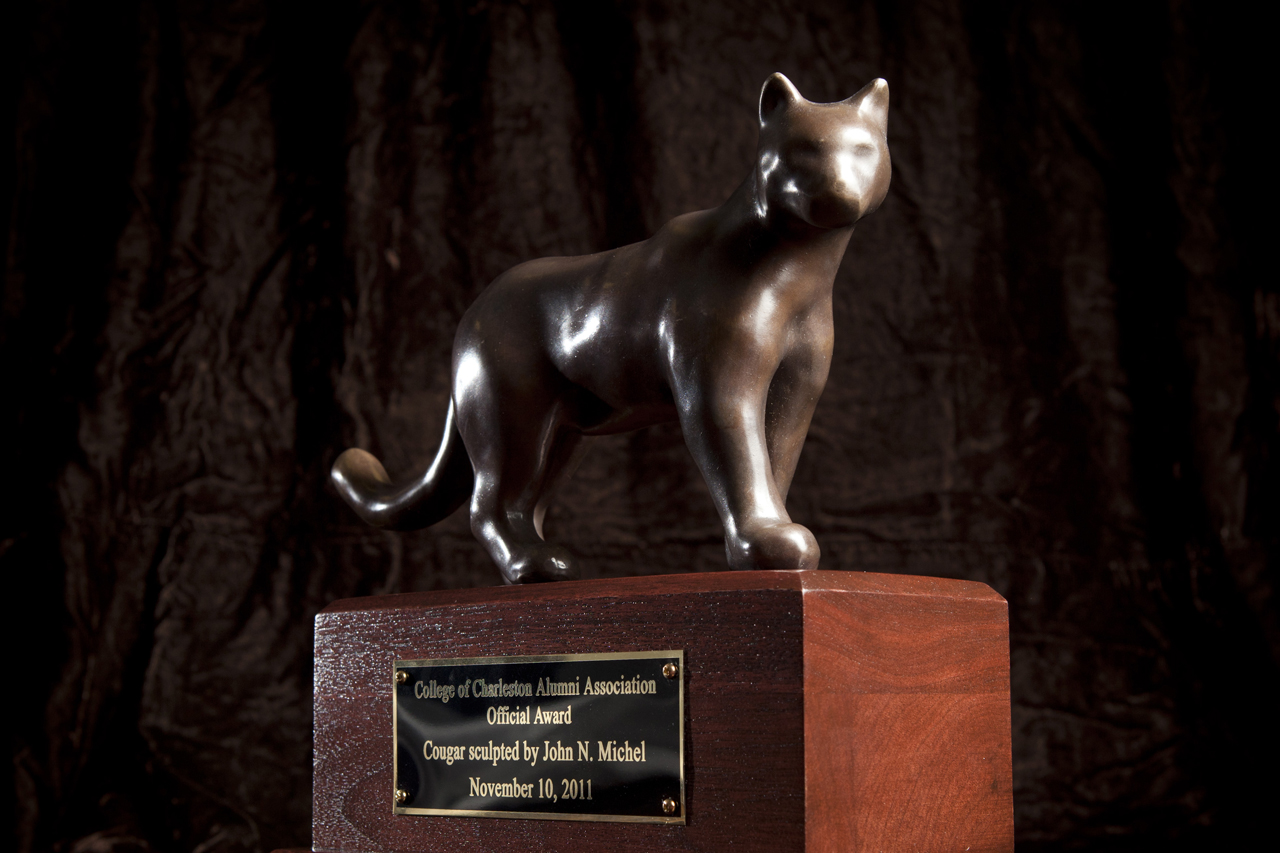Alumnus Makes A Leap in the Dark - The College Today
A physicist working on cutting-edge science, Christian Boutan ’06 received a $2.5 million award to further his groundbreaking research.

Christian Boutan ’06 has always been curious. As a home-schooled teenager in Brussels, Belgium, Boutan was inspired when his mother, Patricia, suggested he might be interested in physics. His curiosity took hold, and he taught himself both physics and mathematics.
He brought that self-motivation and love of learning to the College, where he studied computational neuroscience, graduating with a bachelor’s in physics.
“One of my favorite memories was taking a rhythms class with Quentin Baxter (’98),” says Boutan, whose interest in music served him well after graduation, when he worked as a carpenter and musician to pay the bills while he and his wife, Madeleine Ann Moore Boutan ’00, figured out their next move. In the summer of 2008, the newlyweds traveled westward in their silver Saturn station wagon on the quest for new adventure.
Cue the curiosity again. While earning a doctorate in physics at the University of Washington, Boutan found a new passion: the hunt for dark matter axions. The axion is a hypothetical particle that could account for 80% of all matter in the universe (aka dark matter) and solve deep mysteries in nuclear physics.
While in Seattle, Boutan and a small team of physicists and students built the Axion Dark Matter eXperiment (ADMX) second-generation detector, the U.S. Department of Energy’s flagship search for dark matter axions. His experiment, which national magazines have written about, set world records in the search for dark matter in 2018.
“It’s fun to see the thing you built with your two hands displayed in a Barnes & Noble magazine rack,” says Boutan, who with his ADMX colleagues hopes to measure a tiny radio frequency signal that would be the first laboratory evidence of dark matter. “It would be the discovery of the decade.”
Today, Boutan is a physicist within the National Security Directorate of the Pacific Northwest National Laboratory in Richland, Wash., and his curiosity has led him to pivot again. Leveraging the technology overlap between dark matter detection and quantum computing, he spearheaded the creation of a microwave quantum sensing capability at the laboratory. The budding capability is currently operating superconducting qubits – the basic unit of information in quantum computing – and other exotic devices that only start working at temperatures colder than outer space (-459 degrees Fahrenheit).
It is the diversity of the research at PNNL that he enjoys the most. And his research is getting noticed. Recently, the Department of Energy honored Boutan with a 2023 Early Career award through the office of High Energy Physics. The $2.5 million prize gives Boutan five years of funding to develop a scalable strategy for discovering high-mass axions.
As for his curiosity: Expect that to continue to be a driving force for him.
“To be a scientist, you have to be humble, creative, honest and curious,” he says. “Be skeptical and willing to ask stupid questions. The truth will stand up to scrutiny.”



